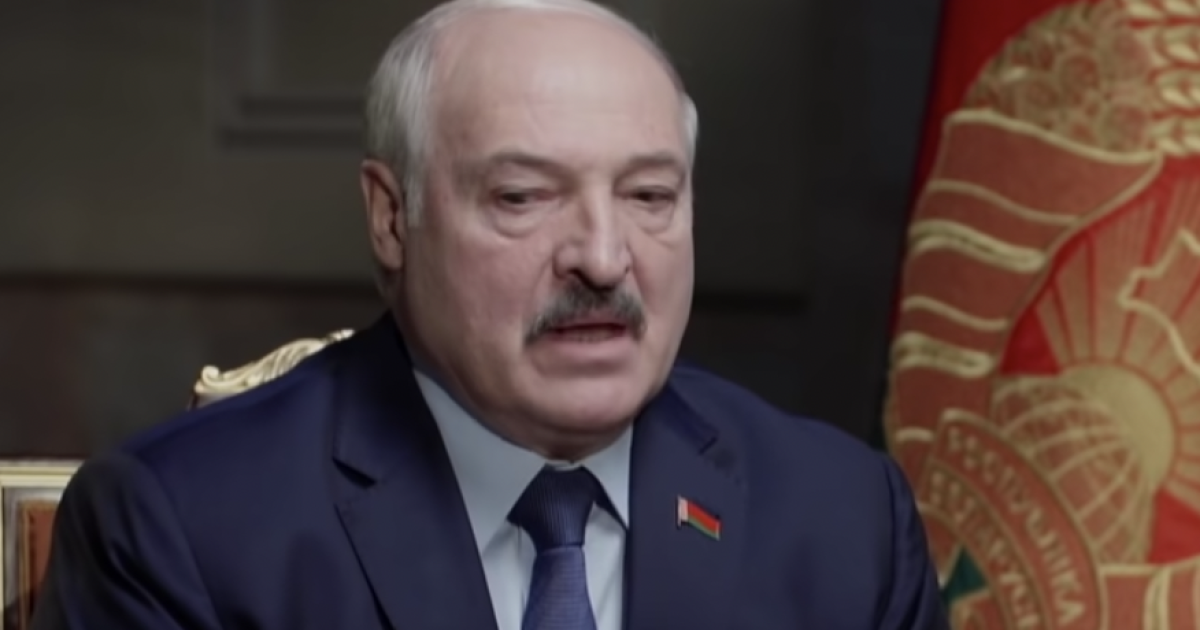
Eastern Europe is heating up.
With the West trying to make Russia bend the knee to its hegemonic order, tensions are reaching all-time highs. But it’s not just Russia that the West wants to topple.
Belarus, which is ruled by the mercurial leader Alexander Lukashenko, has also been under the crosshairs lately. As a result, he’s ready to host nuclear weapons on Belarus’s territory.
“We are ready for this on the territory of Belarus,” Lukashenko told Russia’s RIA news agency in an interview published on November 30.
The Belarusian leader reasoned this move would be a proper response in a situation when NATO installs nuclear systems in Poland, their next door neighbor to the West. Lukashenko said he will put forward this plan to Putin soon.
This entire controversy was sparked by NATO Secretary General Jens Stoltenberg’s comments about deploying nukes within its Eastern European allies’ borders. Naturally, Stoltenberg’s remarks spurred a firm rebuke from Moscow.
The Belarusian state-run media outlet BelTA, said the following:
The Belarusian head of state was asked about a recent statement by NATO Secretary General Jens Stoltenberg regarding the possible deployment of nuclear weapons in Eastern Europe.
Aleksandr Lukashenko responded by saying: “Yes. Then I will suggest that Putin should return nuclear weapons to Belarus.”
“What nuclear weapons?” Dmitry Kiselyov asked Aleksandr Lukashenko to clarify.
The head of state said: “We will agree on what kind. The nuclear weapons that will be most effective in such an engagement. I said for a reason that we in Belarus’ territory are ready for it. As a thoughtful landlord I haven’t destroyed anything [of the USSR infrastructure for nuclear weapons], all the depots remain in place.”
These growing hostilities come on the heels of a recent border dispute between Poland and Belarus, in which the EU imposed additional sanctions on the Belarusian government for its alleged weaponization of migration. In response to the sanctions and NATO /the EU’s use of Poland as a potential battering ram against Belarus, Lukashenko floated the idea of hosting Russian nuclear installations.
According to a Reuters report in the middle of November, Lukashenko “wants Russian nuclear-capable Iskander missile systems to deploy in the south and west of the country, he said in an interview with a Russian defense magazine…”
Belarus is a member of the Collective Security Treaty Organization (CSTO), an intergovernmental military alliance led by Russia. In effect, any hostilities towards Belarus could lead to Russia taking certain controversial measures to secure this region. A hypothetical move by Russia to deploy nukes on Belarusian soil would lead to heightened escalation between Russia and NATO.
The constant saber rattling from the US and its EU and NATO proxies (at least when it comes to foreign policy) against Russia has exacerbated relations in Eastern Europe. One of the consequences of NATO enlargement close to Russia’s border and the EU’s harassment of Belarus is a growing rapprochement between Belarus and Russia. Some geopolitical experts project that Russia and Belarus will form the so-called “Union State” in the long-term, thanks to the EU and NATO’s constant hostility towards both countries.
It’s often forgotten that Belarus has traditionally maintained a multi-vector foreign policy that played the West and Russia off of each other. However, with the EU’s recent interference in the controversial Belarusian elections of 2020, the game has changed.
The way NATO stresses the defensive nature of its alliance ultimately rings hollow. It’s a projection of American military hegemony in how it tries to extend the U.S.’s military footprint in areas well outside of its sphere of influence.
Most rational nations have clearly defined red lines where they will not tolerate any form of foreign powers interfering in their respective backyards. As a country that stresses the importance of the Monroe Doctrine, the U.S. should be the first country to understand this.
Unfortunately, the imperialist mindset has thoroughly consumed the U.S. and its European counterparts which has blinded them from the realities of geopolitics which are inescapable and do not care for their ideological hand-wringing of universalist actors.



